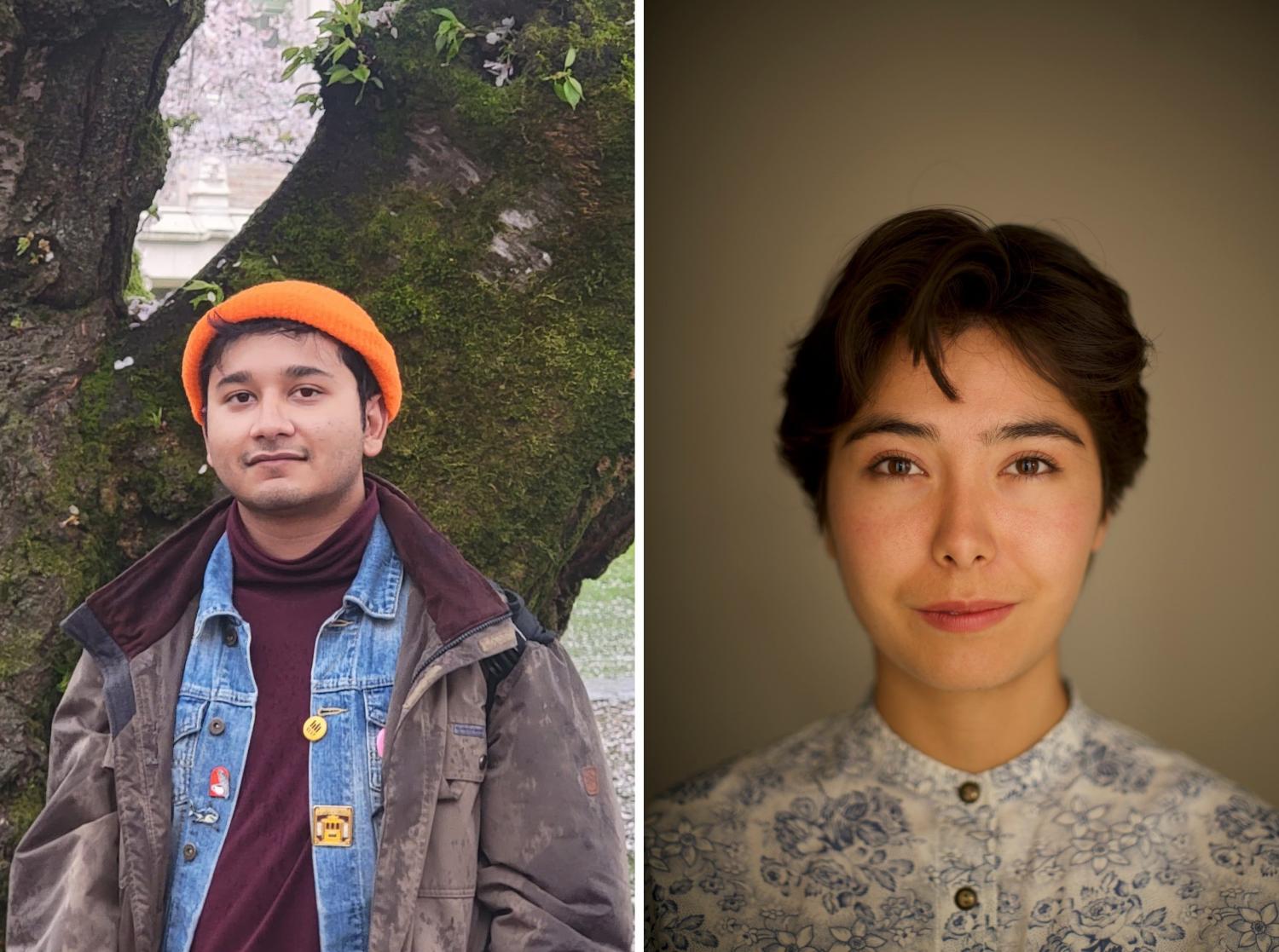CU Boulder scholars recognized for innovation in PhD research
Patrick Das and Julia Shizuyo Popham have won 2025 Mellon/ACLS Dissertation Innovation Fellowships
Two University of Colorado Boulder PhD students have won 2025 Mellon/American Council of Learned Societies (ACLS) Dissertation Innovation Fellowships.
Patrick Das, a PhD student in the Department of Linguistics, and Julia Shizuyo Popham, who is pursuing her PhD in the Department of Ethnic Studies, are among 45 PhD students from across the country who are being recognized for their innovative approaches to their dissertation research in the humanities or social sciences.

CU Boulder PhD students Patrick Das (left) and Julia Shizuyo Popham (right) recently won 2025 Mellon/American Council of Learned Societies Dissertation Innovation Fellowships.
The fellowships, made possible by a grant from the Mellon Foundation, recognize doctoral students “who show promise of leading their fields in important new directions,” according to the ACLS. “The fellowships are designed to intervene at the formative stage of dissertation development, before writing is advanced, and provide time and support for emerging scholars’ innovative approaches to dissertation research—practical, trans- or interdisciplinary, collaborative, critical or methodological.
“The program seeks to expand the range of research methodologies, formats and areas of inquiry traditionally considered suitable for the dissertation, with a particular focus on supporting scholars who can build a more diverse, inclusive and equitable academy.”
Das and Shizuyo Popham will receive an award of up to $52,000, consisting of a $42,000 stipend; up to $8,000 for project-related research, training, professional development and travel; and a $2,000 stipend to support external mentorship that offers new perspectives on their projects and expands their advising network.
Das is researching how geography and multilingualism shape language change in Tikhir, an endangered language of eastern Nagaland, India, near the border with Myanmar. Through spatial analysis, the project maps patterns of interaction between Tikhir and neighboring indigenous languages. Das’ findings offer new insights into how small languages evolve within complex multilingual ecologies.
Shizuyo Popham’s project, titled “Uneasy Intimacies,” interprets Japanese artist and migrant Fukunosuke Kusumi’s collection of visual art within contexts of racial disposability in the American West. By tracing Kusumi’s art through pre-World War II exclusion in Washington, interim detainment in California, indefinite incarceration in Colorado and afterlives of loss and healing, her work examines how seemingly innocuous images reveal marginalized histories, in which dispossessed subjects construct agency and even freedom via the very systems built to keep them down.
“ACLS is proud to support these fellows, who are poised to conduct groundbreaking dissertation research and broaden the audience for humanistic scholarship,” said Alison Chang, ACLS program officer in U.S. Programs. “Their innovative projects not only produce new avenues of knowledge but also inspire the evolution of doctoral education across the humanities and social sciences.”
“This fellowship will enable me to spend sustained time working with the Tikhir community to document their language on their terms,” Das said. “It supports a collaborative approach that values local knowledge and multilingual experience. By combining spatial methods with community insights, we can better understand how small languages like Tikhir are changing today.”
Shizuyo Popham noted that last week, the ACLS joined the American Historical Association and the Modern Language Association in filing a lawsuit to reverse devastating attacks on the National Endowment for the Humanities. “So, beyond the fellowship itself, I’m proud to be joining a community that is courageously fighting for intellectual freedom,” she said.
“I’m also deeply grateful to have an entire year to focus on my dissertation, which is largely about a history intertwined with mass detentions and deportations today. I’ve been studying Japanese American wartime incarceration for half a decade now, and never for me has this history felt so urgent. In these times of increasing terror, I am reminded of why the humanities matter and that to critically think and write is a freedom we must fight for every day.”
Did you enjoy this article? Subscribe to our newsletter. Passionate about arts and sciences? Show your support.

